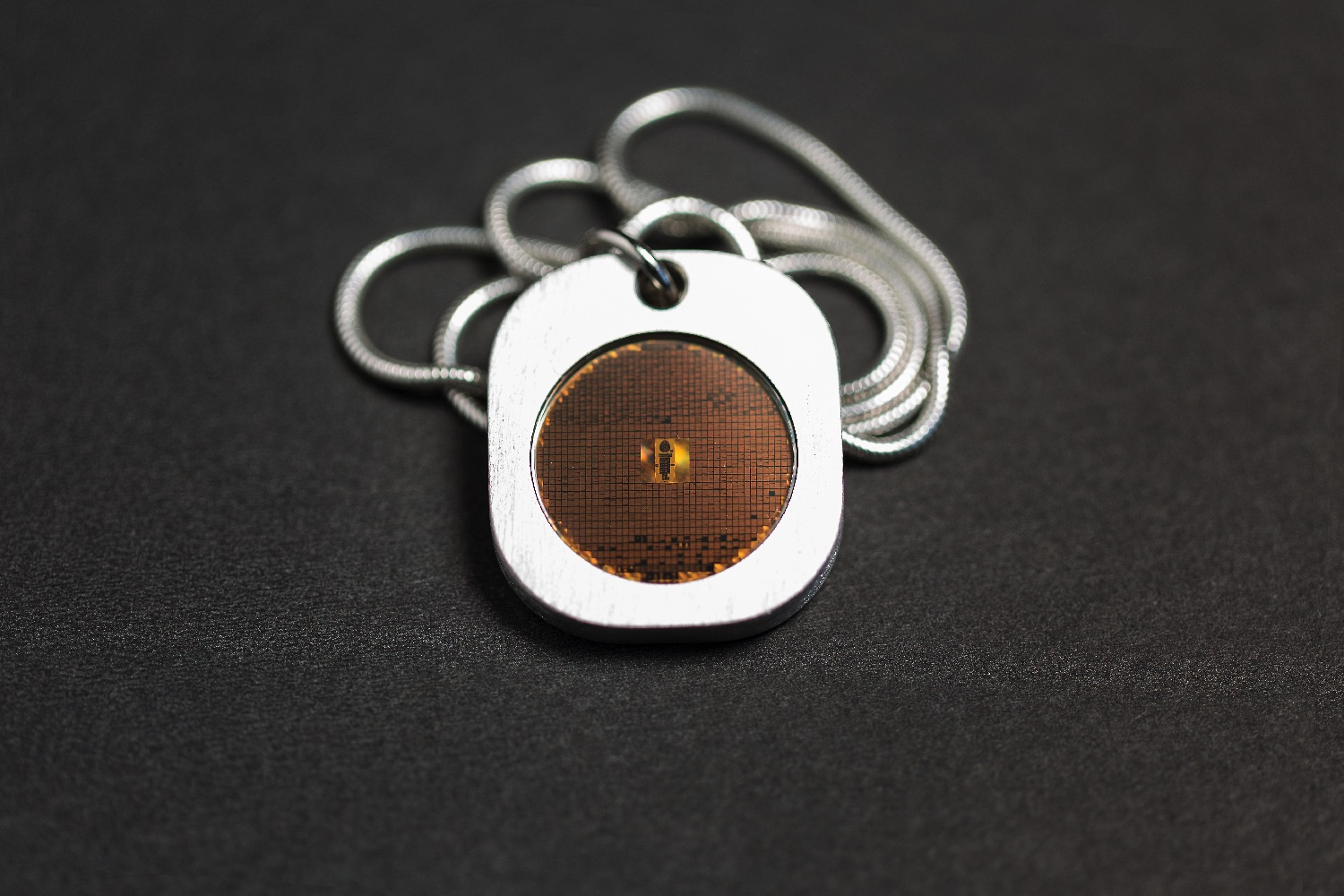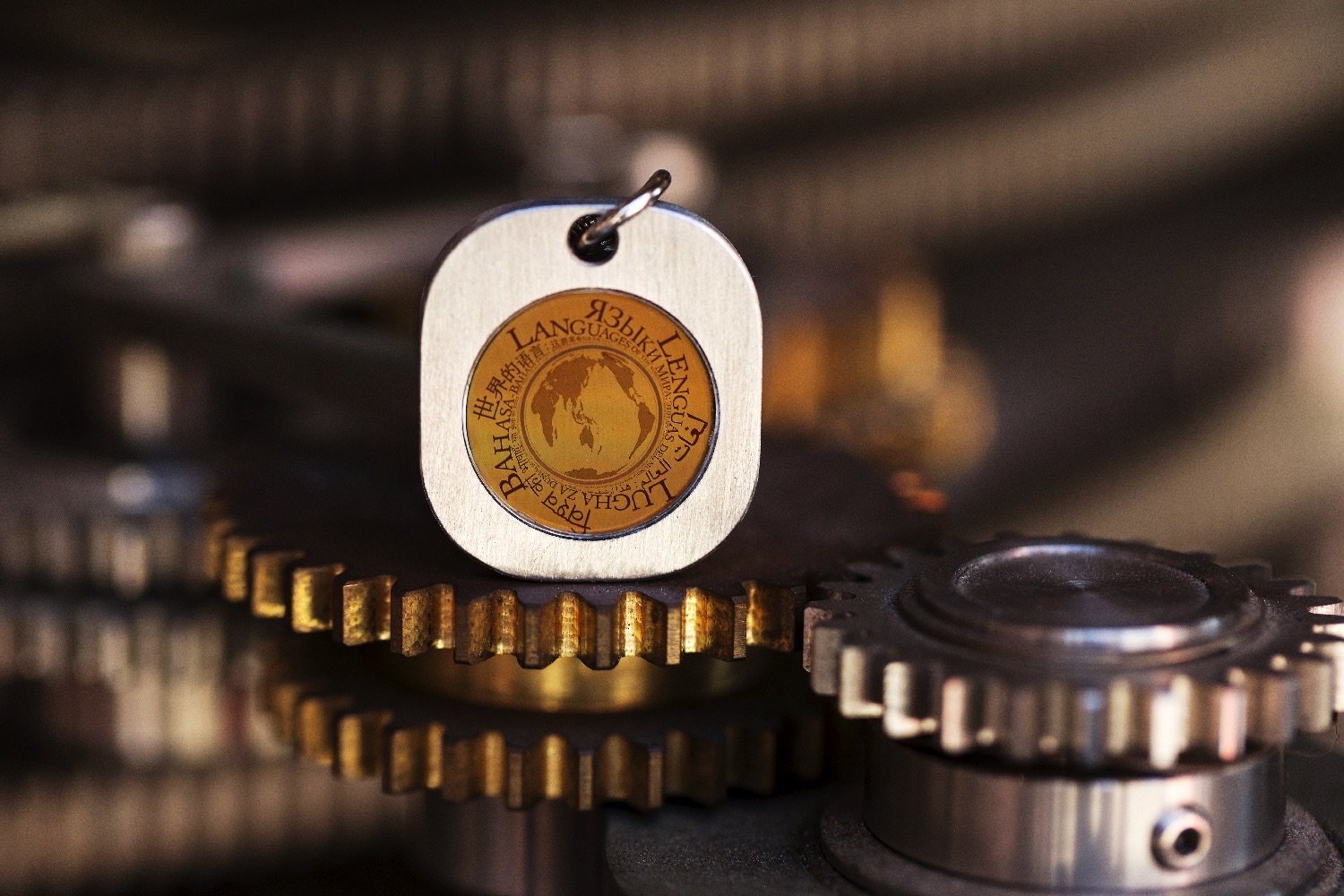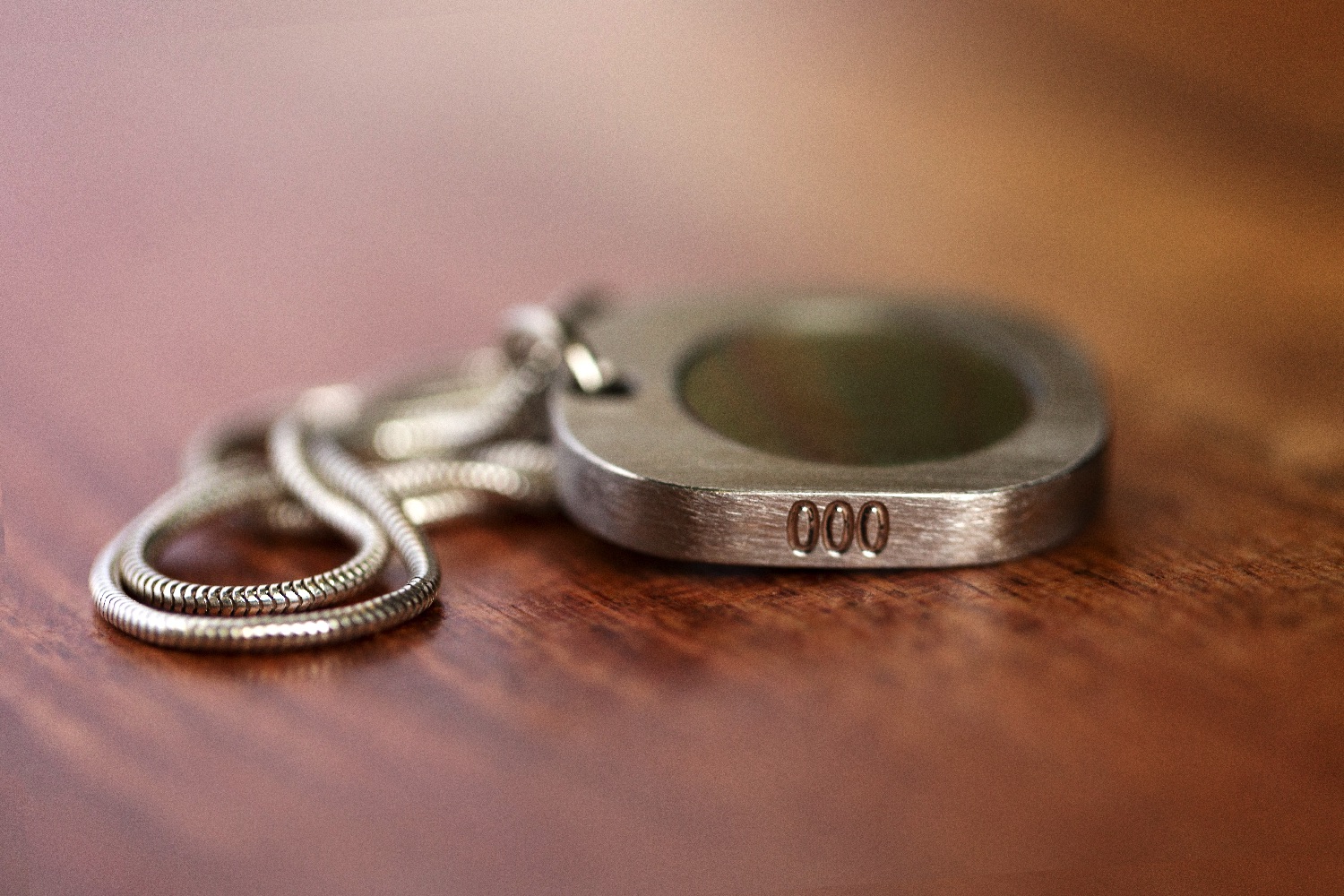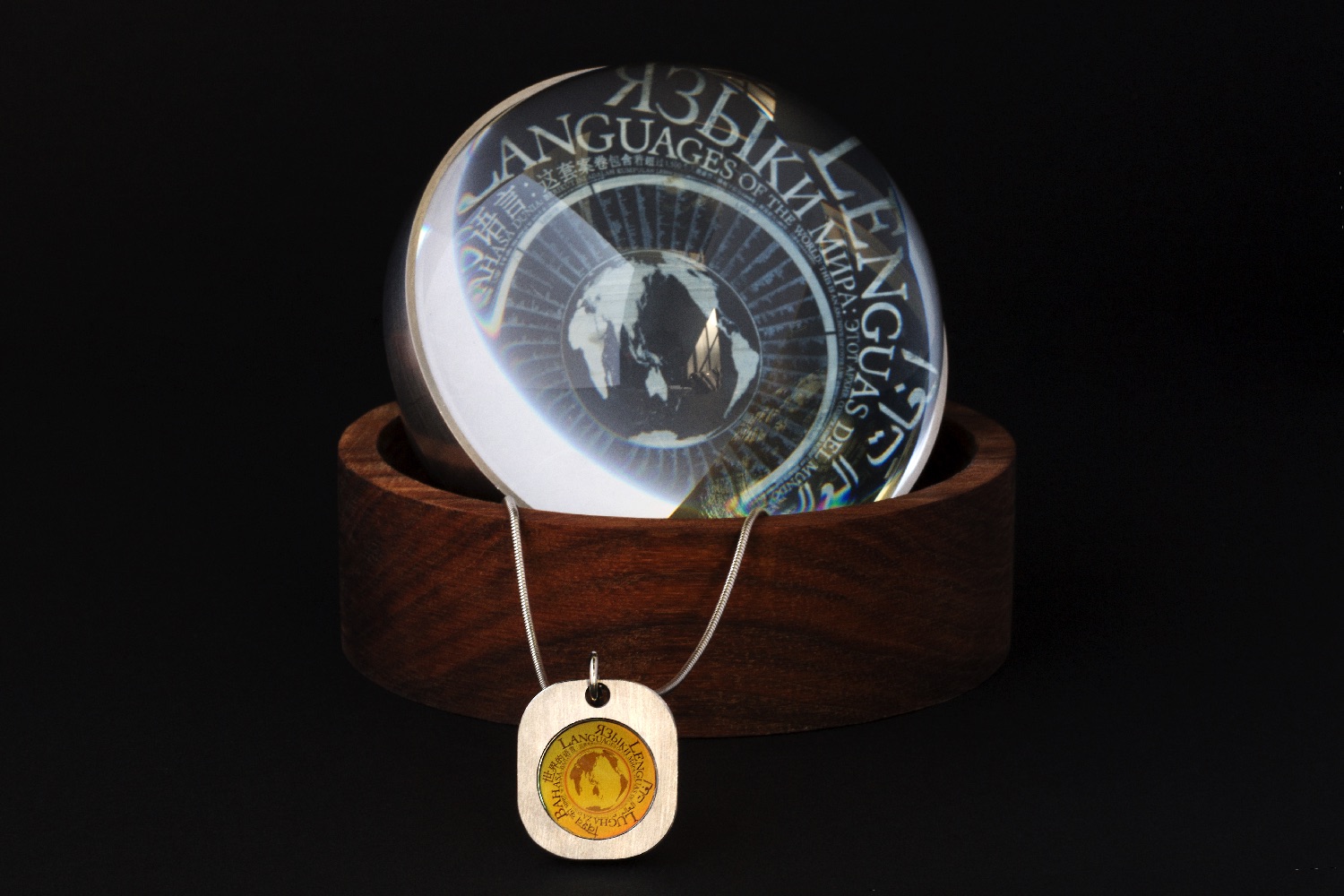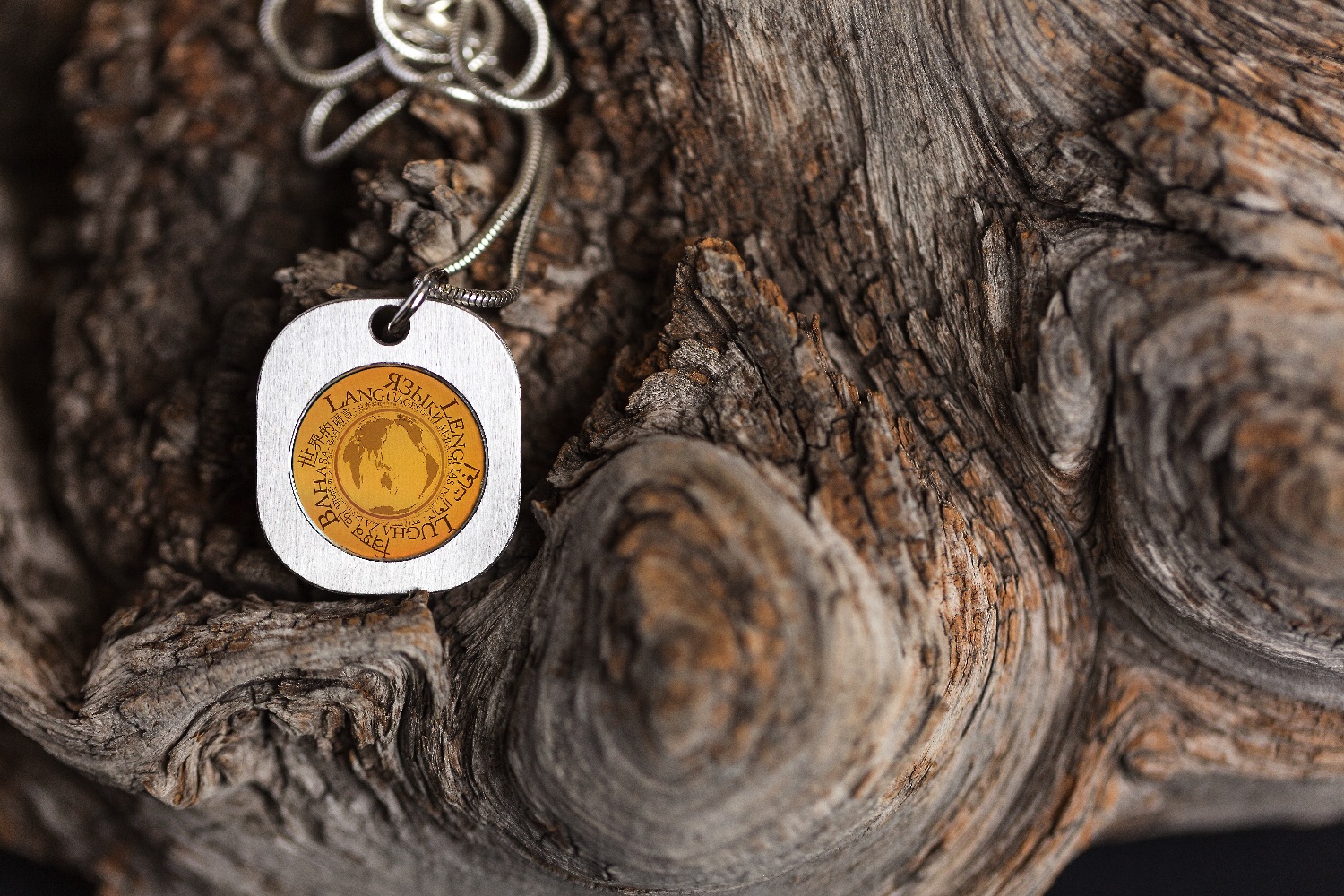Now try and imagine, were you designing such a thing, how you would ensure that it would still be as easily readable 50 or 100 years from now. In a world of ever-changing tech standards, it’s difficult to do that kind of thing for a decade ahead — let alone five or 10 of them.
The Rosetta Project has long been attempting to answer this second question. A global collaboration of language specialists, the Rosetta Project aims to create a modern version of the historic Rosetta Stone, the 196 B.C. artifact which provided modern mankind with our understanding of Egyptian hieroglyphs.
Starting out in 1998, the Rosetta Project used cutting-edge nickel micro-etching technology to bring to life a handful of Rosetta Disks, offering 13,500 individual pages of data in 1,500 languages; readable only using a 500x microscope.
Jump forward to the present day, and the team has released a new Rosetta Disk — and one that also answers the first question we posed. Called the Rosetta Wearable Disk, it’s a Rosetta Disk about 2 centimeters in diameter and which can be easily worn on the human body.
The Rosetta Wearable Disk was produced using a laser which writes straightly onto a photosensitive material coated on a glass plate. These features are then developed to form the microscopic pages before the plate is electroformed to create a thin disk. As with the first-gen Rosetta Disk, information can be read using extreme magnification. (You can check it out for yourself, complete with high-res zooming, here.)
“This is the first process that’s come along that’s made me realize that we can reliably produce these disks in larger batches,” Dr. Laura Welcher, director of the Rosetta Project, told Digital Trends. “The cost went down, the scale went up, but it’s still a custom process. We definitely pushed the boundaries of what can be done in terms of storing text, particularly multilingual text. The ultimate goal was to create something much more affordable than the originals, which were available to people who made donations of $25,000 each.”
Because the Rosetta Wearable Disk is physically smaller than the original Rosetta Disks, there are fewer languages and pages per language, but it’s still an astonishing feat.
“The big question was always what books would you want in order to restart civilization?” Welcher said.
There are 100 numbered copies of the Rosetta Wearable Disk in all and these are available — while supplies last — to anyone who donates $1,000 or more to The Long Now Foundation — with proceeds going toward aiding language documentation and archiving. A thousand bucks may not be affordable to everyone, but given that the disk will reportedly last a millennium that is only $1 per year.
As to what’s next for the project, it seems that Welcher has been inspired by her dive into (semi) mass-market, affordable wearables.
“In the future, I think there could be a version of the disk that’s producible in much larger numbers,” she said. “There are some really interesting things we could explore with a wearable technology. We could look at other kinds of information that could go on these disks. I’m also interested in the materials we could make these from — possibly making a very, very hard transparent surface that would protect it so that we don’t have to cover it in glass as we are at the moment.”
